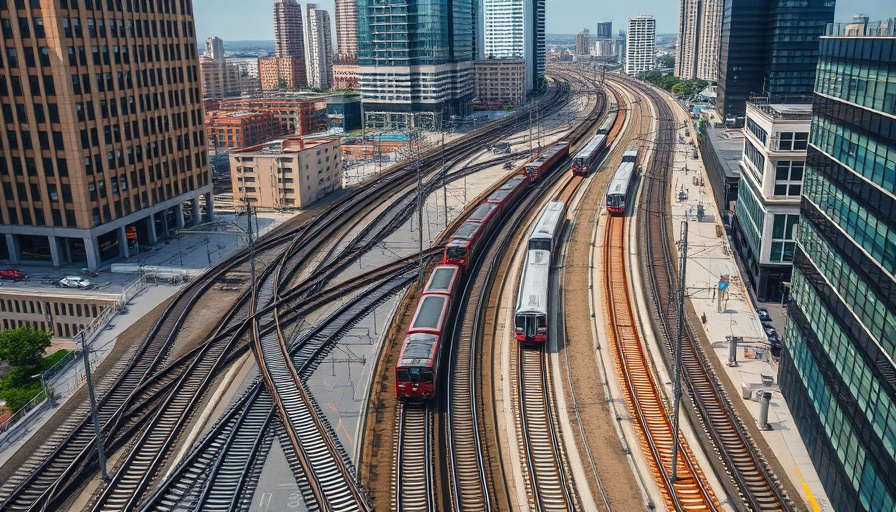
Trump Administration Leverages Government Shutdown to Halt Chicago Infrastructure Funding
In a bold move during the ongoing government shutdown, the Trump administration has withheld over $2.1 billion in funding for critical infrastructure projects in Chicago. This decision marks yet another step in a strategy that utilizes fiscal control as a leverage point in political negotiations. The announcement, made by White House Budget Director Russell Vought, highlights ongoing tensions as Democrats and Republicans remain at an impasse over federal funding issues.
The halted funds specifically impact the much-anticipated Red Line Extension and the Red and Purple Line Modernization Projects, both of which aim to enhance public transport accessibility in underserved areas. The Red Line Extension is designed to add four new stations and extend service by 5.6 miles, enhancing travel options especially for economically disadvantaged communities. The Trump administration's suspension of the funds has left many in the Chicago community worried about the future of their transit system.
Political Context: A Battle for Leverage
The rationale provided for this funding freeze points to concerns over so-called "race-based contracting" practices, which the administration claims are discriminatory and unconstitutional. This stance follows similar announcements impacting New York's infrastructure funding, where Vought previously froze $18 billion intended for several extensive projects, including a new rail tunnel under the Hudson River. The administration emphasizes a commitment to ending practices they deem inappropriate, which they argue affect fair distribution of federal dollars.
Trump's approach to the Chicago situation coincides with a broader narrative around the government shutdown, which is now entering its third day. The stalemate over renewing federal funding appears to be increasingly politicized, with both sides digging in on their positions. House Speaker Mike Johnson's recent remarks underscore the potential for consequential pain felt by ordinary citizens if the shutdown continues, yet neither party seems eager to compromise.
Impact on Transportation and Local Communities
The ramifications of this funding freeze could be significant for Chicago's transit system and its residents. Communities that rely heavily on public transportation to access jobs, healthcare, and education could find their needs unmet as projects crucial for their development are placed on hold. Particularly, the Red Line Extension is anticipated to provide critical economic opportunities by expanding service to areas that previously lacked access.
Moreover, the modernization initiatives not only aim to upgrade outdated infrastructure but also serve to eliminate bottlenecks where different train lines intersect, facilitating smoother operations for millions of riders annually. This project's delay counters previous commitments by city leaders to revitalize public transport in a city where transportation equity is a pressing issue.
What to Expect Moving Forward
The ongoing political maneuvering stands as a reminder of how federal decisions can substantially influence local economies and infrastructure advancements. With the Trump administration focused on leveraging existing projects to make a political statement, residents may have to brace for further delays in essential services. This scenario highlights the intersection of policy and local lives, emphasizing why such discussions should be in the public interest.
As this shutdown continues, citizens in Chicago and beyond must remain aware of how their local initiatives are affected by national political agendas. The question remains what might emerge from these negotiations and whether there can be reconciliatory efforts that prioritize community needs over partisanship.
Take Action: Advocate for Your Community
The current situation serves as a call to action for citizens to advocate for their community. Staying informed and involved with local governance can help ensure that infrastructure needs are recognized and addressed. Engaging with local representatives can amplify community voices in crucial negotiations affecting public welfare.
To understand more about how you can protect your interests and stay ahead of policy changes, consider exploring resources like final expense insurance, which support communities in planning for the future.
 Add Row
Add Row  Add
Add 




Write A Comment